Guest Blogger: Lilith Saintcrow
 And the winner is . . . Julie Doe! Congrats Julie. Send me your snail mail info and I'll pass it along to Lilith. Thanks to everyone for participating. Stay tuned . . .
And the winner is . . . Julie Doe! Congrats Julie. Send me your snail mail info and I'll pass it along to Lilith. Thanks to everyone for participating. Stay tuned . . .Worldbuilding
Hi Lynda! Thanks for having me.
Since I'm a big fan of lists, here we go. Here are my Top Ten Tips For Worldbuilding -- especially building a paranormal world.
10. You Gotta Pay For It. Whatever magic system or superhuman strength you've decided to have in your world, it has to come from somewhere. Meaning, the magic has to have a cost and the superhuman strength has to have a cost as well. Energy doesn't come flying out of nowhere to aid your hero. If there is magic, how do you "pay" for it? If the hero or heroine has superstrength or an invulnerability, what vulnerability/weakness is it balanced by, and how is that superstrength fueled? I'm always amazed at writers who want to build realistic worlds and don't think about where the calories to fuel the big muscles come from.
You should also think about economics. Where does the money come from? Follow the money isn't just for investigative journalism. How do people in your world pay for food? How does your character pay the rent? Where do they go to the bathroom? A little time thinking about these things will inform your world more than you ever thought possible.
9. Someone's Unhappy With Someone Else. The real world is a jostling set of contradictory motivations and conflicting needs. Heroes with clear-cut friends and clear-cut enemies run the risk of turning into cardboard. Paranormal villains and heroes should be people first and paranormal second. Which means they have friends they may not like, motivations for doing someone else wrong, reasons why they act the way they do. Just plain shoving a character into the position of being a hero or a villain is not a reason for said character to hate someone else, hero or villain. Think seriously about what makes a person "tick" and what they want out of the whole situation.
8. Who's In Charge? It's a natural human instinct to wish for some kind of authority. If the authorities are unaware of the existence of your massive paranormal population, there needs to be a good reason why. If they are aware, there needs to be a good reason for them keeping their mouths shut. If a normal person gets dragged into a paranormal situation, there needs to be a good reason why they won't try to alert the authorities.
For worlds created out of whole cloth, you need to figure out who is responsible for taking the rubbish away and cleaning up the streets. A little thought about the municipal and other structures will inform your world to no end, and give you all sorts of options for scenes, danger, and characterization.
7. No Hero Is Stainless. Perfect Mary Sues or Gary Stus are boring reading. Your hero or protagonist needs a few warts or quirks to allow the reader to identify with this person. Conversely, no villain is Pure Evil. Pure evil is, well, boring. A villain the reader understands and can understand the motivations of gives your story exponentially more depth.
Paranormal heroes and villains run the risk of becoming cardboard, especially if there's no cost for their powers/strengths. A little nastiness on the part of a hero or a little altruism on the part of a villain makes for a better, more complex story. You're already asking readers to ditch disbelief in a pretty big way when writing anything paranormal or supernatural. Don't ask them to believe in saints and ultimate irredeemable bastards too. Though both may exist in the real world, in a book they are, well, pretty boring and unlivable.
6. Don't Be A Slave To Convention. What makes your vampires different? How are your werewolves unique? You don't need to bend over backwards to add gimmicks, but when you're thinking about #10 above you need to think about why your supernatural/paranormal beings work the way they do.
Ask yourself "what if?" What if vampires all looked like pudgy middle-aged stockbrokers? What if that shapeshifter had the ability to turn into a huge banana slug? Pretty much all the wereanimals out there are predator animals -- where are the herbivores? You get the idea. Genre conventions exist to be tweaked and gently subverted. This is a case of "you have to know the rules to break them effectively." If you think about why things are the way they are in your world, you can begin to ask the more difficult and wonderful question -- why not?
5. Look At Some Physics. Physics isn't boring stuff -- it can help you in ways you've never dreamed when it comes to writing a story. I suppose this is a version of #10 above, but thinking about the actual physics of a situation, as well as being fun, also gives your world instant depth. If you really think about how something could "work", or if you really understand what a sword is doing when it bites into a watermelon going a certain speed, or if you've thought about how/why bullets travel the way they do, you instantly have a set of rules that are made for tweaking in new and interesting ways. Thinking about physics is one of the easiest and cheapest ways to kick-start your worldbuilding.
4. Love Is Difficult. Chances are, if you're human, you've been in love with someone. And you know how frustrating, wonderful, difficult, soul-wrenching, and beautiful love can be. Don't give your characters an easy out when it comes to love. They should work at it just like we do. If your protagonist has a relationship, don't make it perfect. Relationships are hard work, and people misunderstand each other. Think about why your protagonist loves this person, think about the fault lines and stresses in that relationship. Not only will your characterization deepen, but your world may well come into focus. This leads into #3.
3. Watch Your Fellow Humans. Writers are largely dealing with human nature. Observation, as Holmes once noted, is the key. I like to tell my writing students to go to a public place -- casinos and malls are my favorites -- and get a coffee or tea, sit down with your notebook, and watch. Watch and listen. Make up stories inside your head for the people who pass. Seeing how people behave can show you how to follow or break rules for your character and world.
2. Build Your Environment. Music and movies are invaluable tools for a writer. If a particular song seems to embody your character, think about why. Get in the habit of thinking about why certain movies "work" for you. Look "under the hood" -- a good mood-setting piece of music can give you a whole scene or even a book. What kind of music does your character listen to?
Be careful, though -- a lot of movies break Rule #10. Once you're in the habit of thinking about what magic/paranormal stuff costs, you'll be able to spot violations of that "cost" in other stories, which will help your own.
One of the best things about writing is daydreaming. Building a world in your head and on the page is a lot of fun. Whatever you can do to deepen that experience -- listening to music, dressing up, watching movies, going through thrift stores and looking at things your character would like -- will show on the page.
1. Have fun. This is probably the most important guideline. If you're not having fun in your world, how will your readers? (And let's face it, you've got to have fun doing this, otherwise it's just a ticket to an ulcer.) So have fun with your world. Think about what really makes you excited about this world you've created, what really makes you want to spend a lot of time there telling the story.
And really, who doesn't find the idea of vampire physics endlessly entertaining? Although maybe that's just me. . .
***************
Lilith is giving away a copy of Hunter's Prayer (comes out 9/1) to someone who leaves a comment about one of the worldbuilding rules. (Lilith can only send to someone in the continental US.) Winner will be posted Tuesday evening.
Lilith is giving away a copy of Hunter's Prayer (comes out 9/1) to someone who leaves a comment about one of the worldbuilding rules. (Lilith can only send to someone in the continental US.) Winner will be posted Tuesday evening.
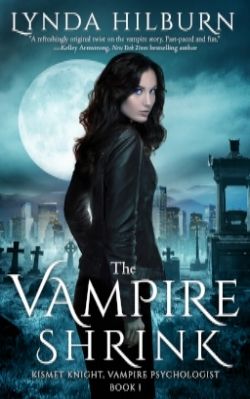
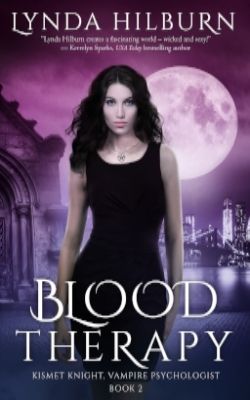
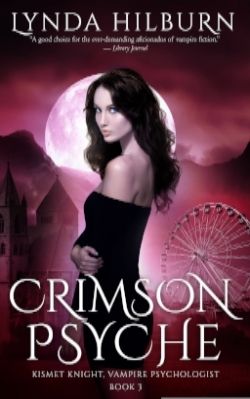
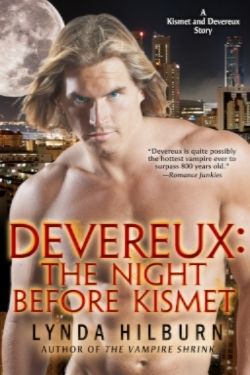
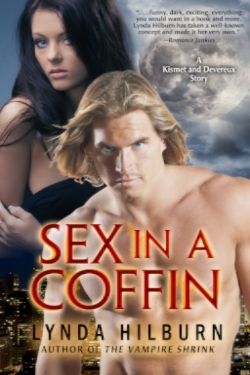
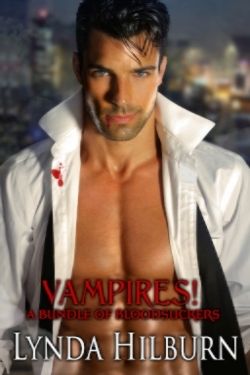
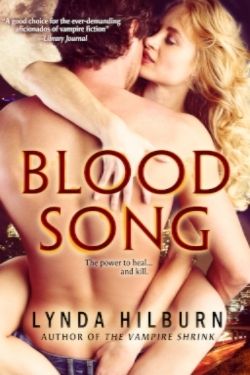
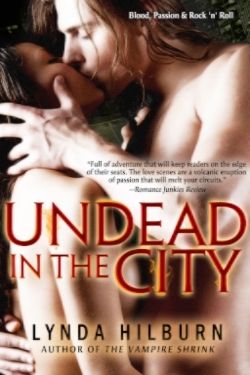
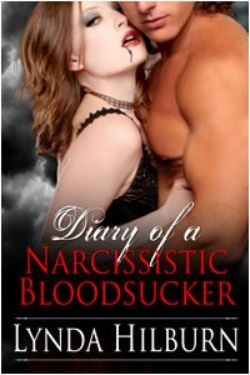
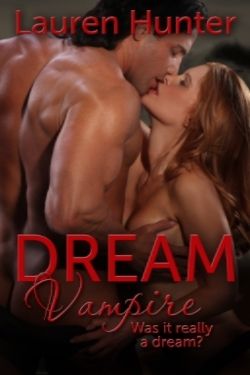
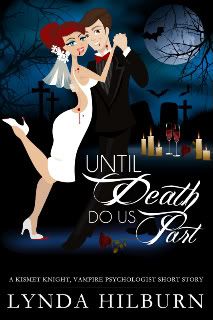
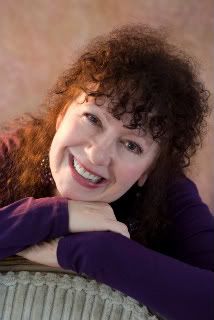
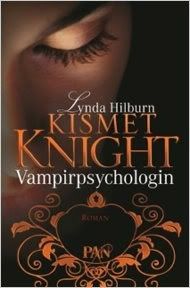
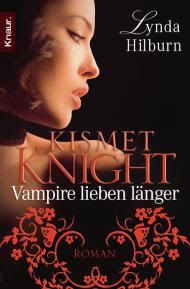
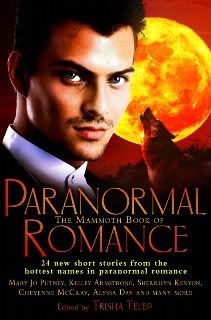
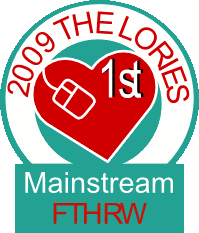




38 Comments:
Those are great tips, Lilith. thanks for posting them!
Ooh, this is a really good list! Thanks for sharing!
Viola
What a terrific list, Lillith. Thanx for sharing. This has really shed some light on a couple of my ideas and how to avoid creating cardboard characters.
Liz Kreger
www.lizkreger.com
I guess movies are an okay start to give you a feel for setting and such, but nothing beats reading a few books done by someone who has a solid grounding in building thier own world. The fun thing is the world doesn't have to be wholey from scratch. A single event changed in this world we live in can drastically alter it enough to be a very new world in fiction form. Building worlds can be so much fun, but very time consuming.
Great list Lillith!
Hi, Lili.
It's a great list, although I personally might hedge a bit on #6 -- maybe because I've seen the extremes to which some writers in the genre go. Cuddly demons? Puh-leeze!
And IMHO, Ann Rice has a lot to answer for. I agree with F. Paul Wilson, and what he wrote in the preface to "Midnight Mass" -- vamps are EVIL.
Hope I win the book, but you KNOW I'm gonna buy that sucker the day it comes out, otherwise. Jill rocks!
Justin Gustainis
My favorite genre to read is Paranormal (vamps). Enjoyed your lists today. I enjoy the different authors and their take on vampires.
Thanks for being here today, Lilith! Hi, Justin! (Check the links on the left side of the blog, everyone, and read Justin's recent blog post). Well, I like the evil/monster vamps, but I see bloodsuckers as extraordinary creatures, and I enjoy all the different flavors various authors (including Anne Rice) have come up with. Lestat is one of my favorite characters.
Hugs, Lynda
As a big fan of paranormal/urban fantasy stories, my favorite characters are those that are flawed and have both good and bad traits, but strive to do the right thing. The same with the romance, I want the frustration and humor as well as the sexual chemistry, though I am still a HEA girl at heart.
A great paranormal romance story is only limited by the author's imagination, and I love the world I get to disappear into for awhile.
Having built several worlds, I really liked your answer to #10. People often don't think of the economics of their paranormal world as they build it.
Great list and a nice guide for worldbuilding
I love these rules. I wish more people would use them when writing their worlds. It could make things so much more interesting.
Thanks for posting them!
StaceyB
Very helpful, presented that way. going to DragonCon?
Love the idea of were-banana slugs. But then I live in Oregon so I have a soft squishy place in my heart for gastropods :)
I agree with the physics issue. When I read shifter stories I have to stop myself from fretting about the conservation of mass & energy. I can see blowing off energy to change from human to were, thus losing mass. But the conversion back... And my hero can't shrink!
Thanks for the handy list. It'll be a good link to send people to.
You have a great list of guidelines and you're spot on. I like where you have your heroes dealing with a little bit of a moral dilemma. Anything else is just unrealistic, isn't it?
doot65{at}comcast[dot]net
Elizabeth
Nice List. I love vampires and werewolves, Ok any thing paranormal. I read constantly. I can't write for crap, but I can read what ever you all can write, so keep em coming
Great set of rules. I wish I was writing a book so I could use them.
The one that resinates the most is that no hero is stainless. I think that flawed people are so much more fun than perfectly evil or good. Hell, even Darth Vadar was an old softy.
Thanks!
Katie
#1 is the most important, I think. If you aren't having fun any more, why bother?
Your ten tips are great! I completely agree that watching my fellow humans helps. I've worked in customer service most of my life and some of my characters' little quirks come from people I've encountered every day.
The part about no hero being stainless made me think of these 2 quotes:
"Down these mean streets a man must go who is not himself mean, who is neither tarnished nor afraid... He is the hero, he is everything. He must be a complete man and a common man and yet an unusual man. He must be, to use a weathered phrase, a man of honor, by instinct, by inevitability, and certainly without saying it. He must be the best man in his world and a good enough man for any world."
- Raymond Chandler
“The noir hero is a knight in blood caked armor. He's dirty and he does his best to deny the fact that he's a hero the whole time.” - Frank Miller
Great list. I think that #4 is too easy to forget for some...both in fiction and real life :)
I like number seven best; I think too often people forget that the best heroes are the ones that have pasts they hate or try to deny or overcome. It's much more interesting to read or write about someone with flaws.
Great list. Regarding #10: I once read a book where, at the end, the heroine came to wield unlimited magical power. She could conjure food, clothing, money, anything out of thin air with no apparent penalty. I remember being very let down by that.
I LOVE the 'what if?' question. Makes for endless possibilities.
Thanks for posting the list!
I especially like number 6. I follow (read: devour) a great many paranormal series. I love books where there's a twist on the basic concept. Just today I was talking with a friend about that movie, Dracula 2000, with Gerard Butler. Great eye candy but an even better twist to the Dracula mythos.
Great List! I've been getting stuck on some of my worldbuilding and your list really opened up some important things for me to think about to make it work. Thanks Lilith!
I just finished reading Night Shift and it was AWESOME! I loved it and can't wait for Hunter's Prayer!
-Lina
I loved your tips, especially how you described boring characterization as 'cardboard'.
I'm frightfully good at finding those dreaded "Mary Sue" characters, and it still surprises me that they are seemingly everywhere. *coughcoughStephenieMeyercough*
I absolutely LOVE when good and evil coexist in one character. I'm in the process of writing my own story--more mythological than paranormal--but your tips will help me stay on track just the same.
Really great tips, thanks a bunch.
=^.^=
As a reader, your list made it much clearer to me why some books/series stand far, far above the rest. Thanks!
I enjoy your livejournal (I'm bhadrasvapna), so decided to come over here and see what you were up to.
I agree with your rules, but then I think about the book I'm working on. The vampires are comparable to God. Not god, little g, the standard Norse/Celtic/Greek/etc gods or Glory from Buffy, but God, big G as in the Judeo-Christian with all those omni's, including omnipotent and are actually immortal, not just really hard to kill. It is part of the fabric of the universe I have created.
One of the lines is "Matter can be both created and destroyed. It just happens outside the realm of human perception and that is where Janie now existed."
There is no physical cost to what they do, though there are huge ramifications psychologically.
A big part of the fun in writing the book is crafting a universe that even goes beyond the standard supernatural, things like describing the Gates of Heaven or even Heaven itself and violating the laws of physics, though to do this, it is explained that this is beyond human perception/understanding.
All those rules are important, but breaking them is so much fun.
i love the way you make me think more deeply. In the five minutes it's taken for me to read your list I am already itching to read back my last six months work. Thanks for a much needed bump start.
Here via your LJ blog, Lilith. Thanks so much for these tips; there's really valuable information in there. I especially liked 7 - 9. It's not easy building a world but with this list as a guide, odds are your world will be a lot more interesting!
I just finished "Working for the Devil" — Lilith, your approach was definitely refreshing!
Cool list of world-building tips! #10 is especially insightful. They also point out to me a bit of what seemed to be lacking in some books that I just couldn't get into while reading not too long ago. Hopefully, this will help me continue to develop my own stuff, too... ;) Many thanks, Lilith!
I like the list, though I do think you have to be careful about bending your mythical/supernatural types too much. I've seen stuff where a given critter may be called 'vampire' or whatever, but then is so very very different from any of the usual conventions of vampires that it keeps pulling me out of the story and throwing off my groove! I think you want to do stuff that's different, PLAY with the conventions, but keep it where the reader can still relate without falling out of the story and the flow! :)
Thanks for the list.
~J
#3 is so much fun, too. And especially at airports. A valuable tool for actors, but more so for writers, IMO.
Thanks for the list. :-)
Here via your blog Lilith. I've got to ask, have you ever considered doing a writing workshop? The stuff you teach is down to earth and USEFUL to those of us that are aspiring to be writers. I almost always learn something from your posts. Thanks for taking the time to share.
Toodles,
Nicki
always great to find another blog about good writing, but honestly, just here to win a book "Hunter's Prayer"..
Shout out to Lilith! You Rock!
Seraphim
Great list and very helpful. I read your writing posts on your Blog regularly and they've really helped me as a 'young' author. #10 I think is the most important rule for world building. I never really thought about it before, but now I realize the best books I've ever read have obeyed this important rule. It gives the book more depth, more believability -- in essence just makes it better.
Although in attempting my first novel I find I often get overwhelmed with the # 10 rule. There are just so many rules to figure out, and to do so in an interesting new way. How do you not get bogged down with trying to figure out everything? And I often get so wrapped up trying to figure out the specifics I never get to writing! How do you combat this?
regarding rule #3:
if i watched my fellow humans, all i'd want to write are dark comedy and satire. ;)
Lilith, I just finished reading Brother's Keeper in the Hotter than Hell anthology, and i liked it so much i looked your website up which linked me to this article... whew! Just want to say 3 things: 1 - I hope that your short story continues in another novel, because i want to know what happens next! 2 - as a wanna-be writer, reading as much as i can of the authors whose style I enjoy, I will definitely be looking up some of your novels! 3 -great advice on world building - i'm saving your article in my notebook of "writer's stuff". Nancy T.
Post a Comment
<< Home